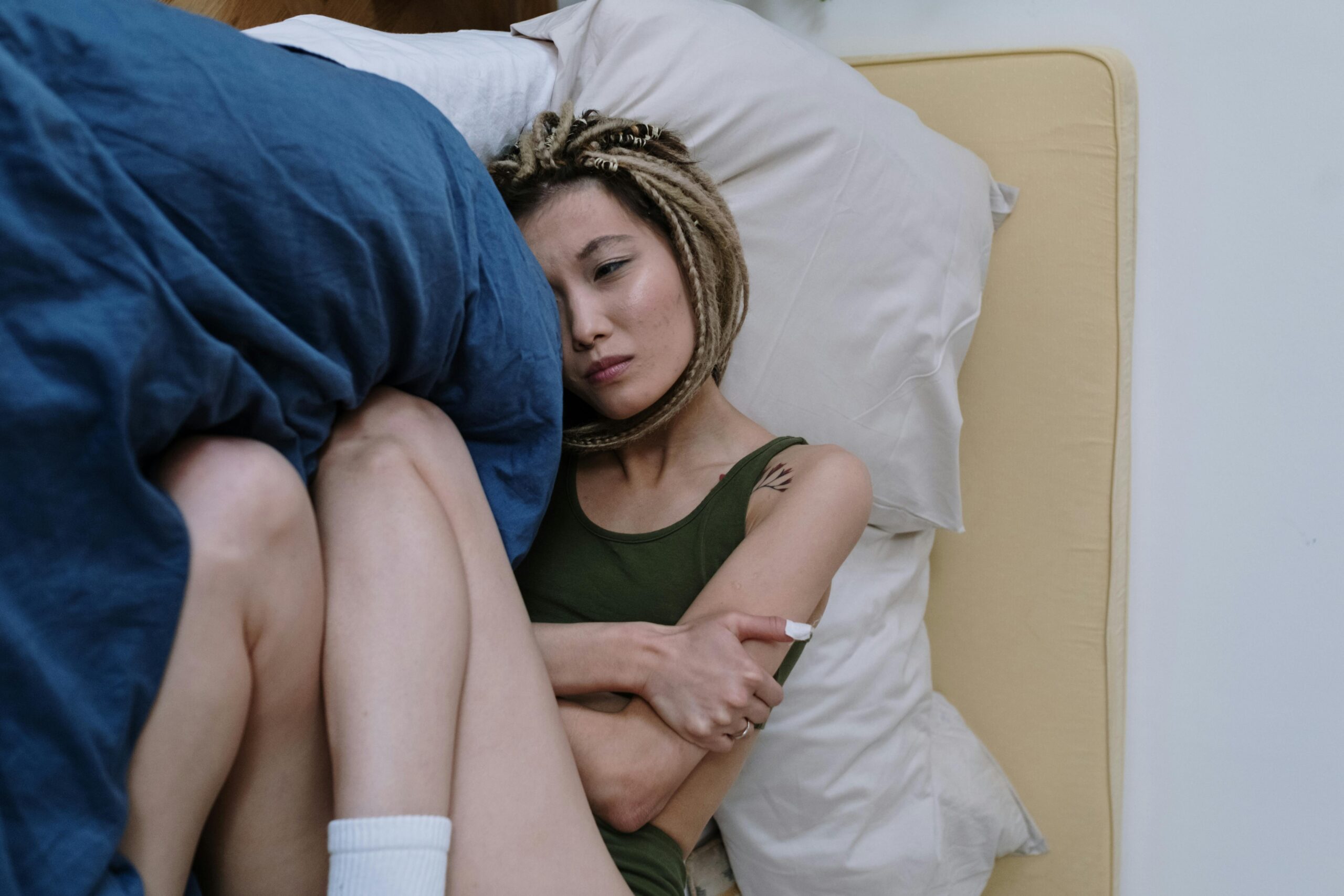
What is amenorrhea?
In this article
What's the lowdown?
Amenorrhea is the lack of periods in women of reproductive age
This can either be primary (when periods have never started) or secondary (when periods stop).
There are many possible causes, most commonly involving the pelvic organs, the brain’s hormonal control centres, or as a side effect of certain medications.
Menopause is also technically considered a cause of amenorrhea, as it marks the time when you stop having periods as you get older
What is amenorrhea?
Amenorrhea simply means the absence of menstruations in women of reproductive age. You can either have primary or secondary amenorrhea1.
Primary amenorrhea: Never having had a period by the age of 15, or by 3 years after breast formation
Secondary amenorrhea: Paused periods, or the lack of periods for more than 3 months in women who have previously had regular periods or greater than 6 months in women with irregular periods
There are many possible reasons for experiencing amenorrhoea, including problems with the ovaries, the hypothalamus or pituitary gland in the brain, certain medications, and physiological factors such as stress or low body weight1.
Why do we need periods?
Periods are not just a normal part of life, they’re also an important sign of your overall health. Each month, your body goes through a series of delicate hormonal changes that trigger ovulation (the release of an egg from the ovaries). If the egg isn’t fertilised, the lining of the womb is shed as a period.
When you’re not having periods, that lining can build up over time, which increases the risk of conditions like endometrial hyperplasia and, in some cases, endometrial cancer2. This is why having regular periods can be an important indicator that your reproductive system and your hormones are working as they should.
Amenorrhea causes
There are many reasons why your periods might stop1:
- Problems with the reproductive system. Sometimes, physical issues like a missing vaginal opening or conditions affecting how the reproductive organs develop can stop periods from happening or being seen.
- Weight changes. Very low body weight (for example, due to an eating disorder), being overweight, or sudden weight loss or gain can affect your hormones and stop your periods.
- Contraception. Some types of birth control, like the implant or hormonal coil (IUS), can stop periods altogether.
- Breastfeeding. If you’re exclusively breastfeeding in the first 6 months after giving birth, your periods might stop. This is called lactational amenorrhoea and can even act as a natural form of contraception during this time if certain criteria are met.
- Hormone signals from the brain. A part of the brain called the hypothalamus controls the hormones that start your period. If it stops sending the right signals, your periods can stop too. This is called hypothalamic amenorrhoea 3.
- Pituitary tumours. Growths in the pituitary gland (a small gland in your brain) can cause it to release too much of a hormone called prolactin. High prolactin levels can interfere with the hormones that control your menstrual cycle, leading to missed periods.
- Menopause. When you haven’t had a period for over a year over the age of 45, you’re considered to be in menopause. This is a natural part of ageing. If it happens earlier than 45, it may be a sign of early menopause, which should be discussed with a doctor.
- Primary Ovarian Insufficiency (POI). Also known as premature menopause, this happens when the ovaries stop working properly before age 40. It leads to lower levels of oestrogen and can cause periods to stop.
- Polycystic Ovary Syndrome (PCOS). People with PCOS may have irregular or infrequent periods. In some cases, periods may stop for more than 3 months at a time.
There are also some more niche and rare causes of amenorrhea in addition to the ones we have outlined above.
Amenorrhea symptoms
The symptoms of amenorrhea are mainly to do with your period. Either you have never had a period, or you had periods at one pointand then stopped having them for more than 3 months, if you previously had regular periods, or more than 6 months in women with irregular periods.
Sometimes you might experience symptoms specific to the cause such as menopausal symptoms with menopause and POI, visual changes with pituitary tumours, and side effects of the hormones with contraceptive use.
When should I book a GP appointment?
It is important to keep track of your menstrual health after reaching the age of puberty. If you have never had a period after 15, or they have now suddenly stopped for 3 months or more, it could mean there is an underlying condition causing this. Book an appointment with your GP, or if the waiting lines are too long, skip the queue and book an appointment with our Lowdown GPs directly. The GP will take a thorough history from you about your reproductive health, any associated symptoms and relevant medical history which could be contributing to your periods.
Depending on the cause, they might refer you to a gynaecologist who can order more specialist scans and tests to get to the root cause of your amenorrhea.
How to get your period back
Treatment for amenorrhoea depends on what’s causing it, but there are several options that can help.
One common treatment is the combined oral contraceptive pill, which helps regulate hormone levels and can make your periods more regular. It includes a pill-free week that triggers a withdrawal bleed like a period, which is especially helpful in conditions like PCOS4.
If your periods have stopped due to an anatomical issue, such as a problem with the structure of your reproductive organs, treatment may be more complex and could involve surgery.
If your period loss is linked to weight changes, your doctor will likely recommend working towards a healthy weight, as being underweight or overweight can affect your hormone balance.
There’s no one-size-fits-all treatment for amenorrhoea because it really depends on the underlying cause. That’s why it’s important to track your cycle, whether with a diary or a period tracking app, and speak to a doctor if you notice changes or if your periods stop altogether.
Our medical review process
This article has been medically reviewed for factual and up to date information by a Lowdown doctor.






